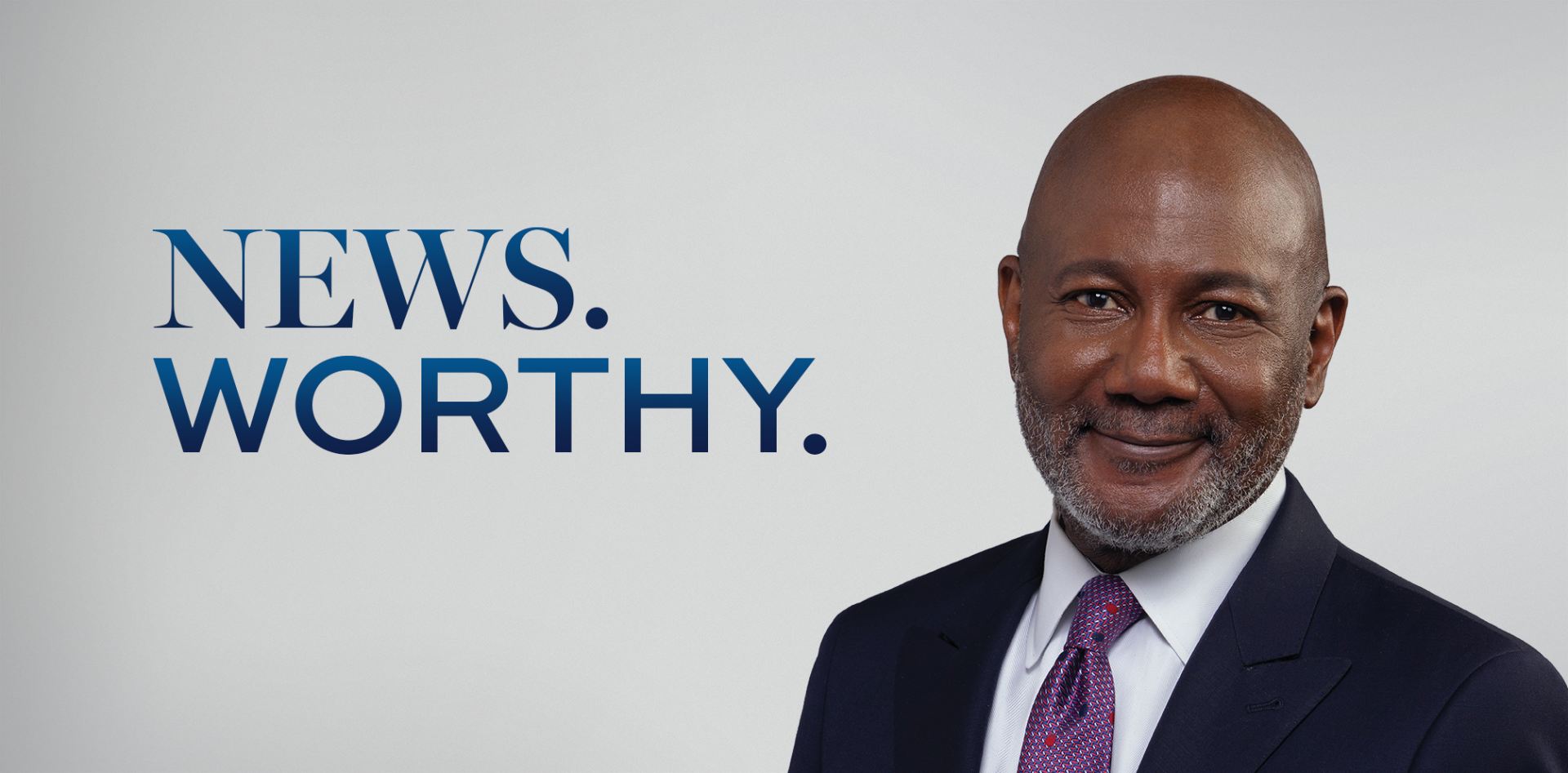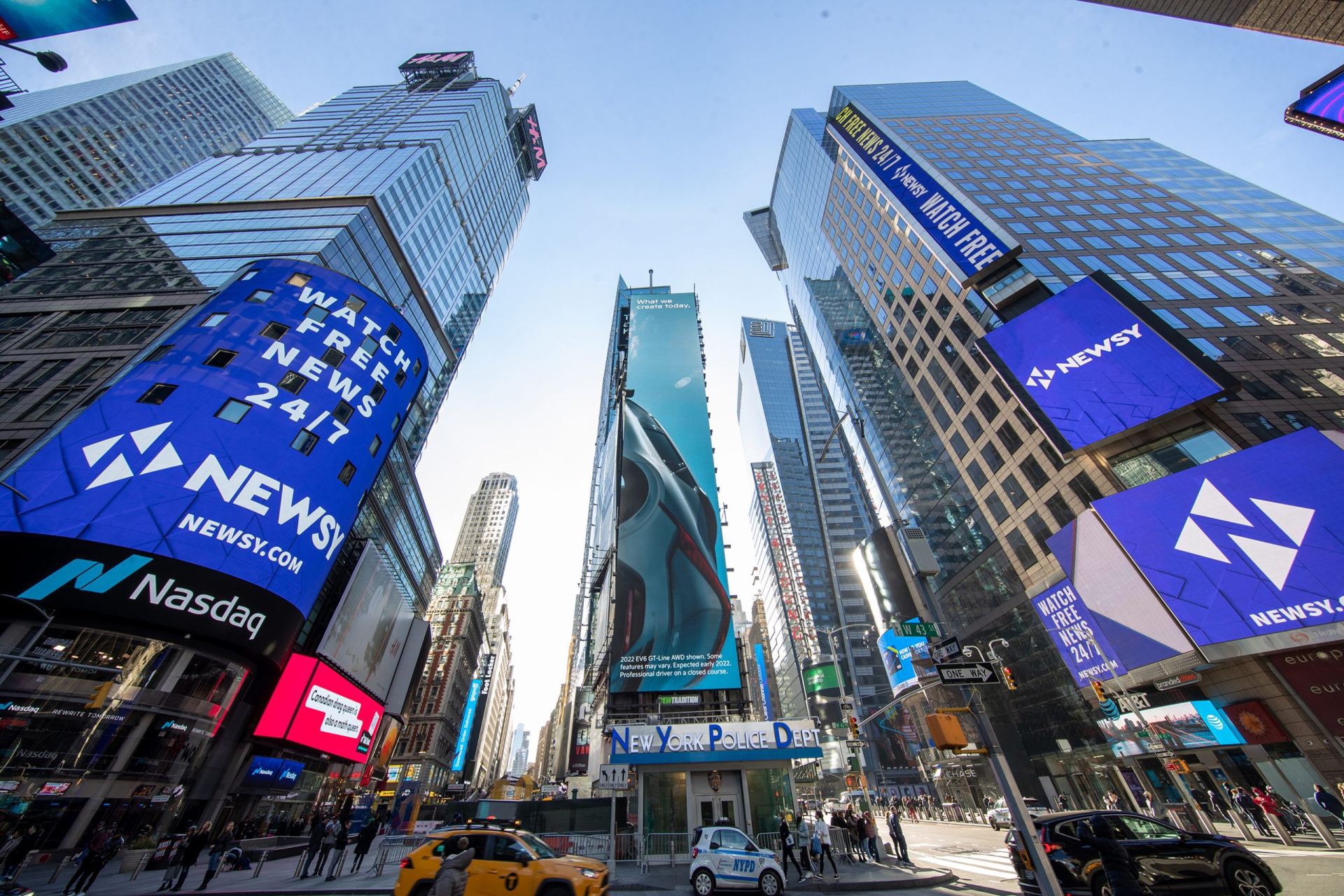Eric Ludgood’s ’78 journalistic integrity has guided him through his career as a writer and producer at local stations—and now as head of Newsy.

Eric Ludgood’s news career has spanned reporting and producing at local TV stations to his rise as vice president of editorial at CNN. Now head of Newsy, a free Scripps-owned, 24/7 news channel available through streaming platforms and over the air, Ludgood oversees the network’s programming and editorial identity.
In the following conversation, Ludgood talks about his career, including his experience as a Black journalist and executive in mostly white newsrooms, the importance of local news and why he is optimistic about Newsy’s chances for success.
Auburn Magazine: What brought you to Auburn?
What or who inspired you to go into TV?
Questions came from my [high school] counselors because it was different for somebody being a Black male from the South who wanted to be in TV and on TV; they understood the pressure and the controversies that might bring. Seeing Norman Lumpkin on television every day let me know that it could be done. And because it could be done, I stayed the course.
“WTVM taught me to focus on the work, and not on where you get the work. The most important thing is to be a journalist, and you can do good journalism anywhere.”
Early Career
What were your first couple of jobs out of school?
Downers Grove was one of the first cities in the country to have their own cable television station, and I put that TV station on the air for them. It was a fun job, and I got a chance to do a lot of things that really helped my management career, but I wasn’t doing news every day. I missed that. My former boss at WTVM, Dave Richardson, called me and said I could come back, and I did. That was 1986, and I was there until 1989, and then came to Atlanta.
It sounds like WTVM was a good home for you.
Give us a general sense of your experiences as a Black journalist and TV producer.
I’m not going to tell you that this has been easy. The harder times were early on when I was out on the streets, and people said things and called me things and areas I went into that people didn’t want me in. And then I stepped up to management, and people wondered if I was the affirmative action hire; there were times when people would come right out and say, “How did you get this job?” That kind of thing.
I would just smile. I was a little conceited in my younger years, and I would say to myself, “I got this job because I’m better than you,” but I didn’t respond to them and just did the work. And I have been blessed that the work has proven out over the years, and that’s all I can stand on. I stand on my work, and I stand on the way I treat people.
It’s also the people you have in your life; you don’t do this alone. Everyone needs an advocate. And not all my advocates have been Black; a lot of my advocates supported me as a person because of what they saw in me or what they perceived I could do.
Much of your career has been spent at smaller, local TV news stations, and you’ve said that you’ve really come to value their role in the news. Why is that?
How did you move from local Atlanta news to CNN?
In my last years there, my primary focus was on-air quality and getting folks to where they needed to be, building out our coverage–so our coverage plans, hiring and training writers, producers and copy editors. Unfortunately, I wasn’t producing TV anymore, but I was involved with everyone who did.
What was it like being one of the few people of color in a top-level newsroom position at that time?
Part of it is being comfortable with who I am, and this wasn’t anything I learned quickly, mind you. But you can be in situations where folks want to ask questions or push a little bit and wonder, “Well, why do you care about this?” And I care about this because everyone should care about it; I’m bringing it to your attention because I am aware of it. And because I am Black, I am aware of it.
These days, everybody’s talking about diversity and inclusion, and CNN was so far ahead of the curve that we were talking about this years and years ago. Our president at the time, Jim Walton, was adamant that the pool of applicants needed to reflect the country. He was serious about that, and we recruited at conventions like the Asian American Journalist Association, the National Association of Hispanic Journalists, the National Association of Black Journalists, because we wanted to make sure our pool was correct, that it reflected the country and then we picked the best people. And in terms of equity, I made sure we were paying the men and women the same salary for the same work.
Newsy
Can you give us your elevator speech for what Newsy is?

Newsy on opening day in New York City
“We’re trying to touch on subjects that everyone cares about and tell these stories in a way that people will feel much closer to—go beyond the minute-long sound bites and tell the whole story.”
Why do you think a network like this is necessary in today’s mainstream news market?
We’re trying to touch on subjects that everyone cares about and tell these stories in a way that people will feel much closer to—go beyond the minute-long sound bites and tell the whole story. And because of our partnership with other Scripps and local TV stations, there’s not a subject that we can’t cover from four or five different angles from different parts of the country.
Last week, we sent out one reporter who is based in Arizona, another based in DC, and one to West Virginia to help people understand who Senators Machin and Sinema are. Why do you keep hearing about them? How much power do they have? What are they doing and why? We didn’t do that in Washington; we went to those places to do those stories.
It’s critical for us that we are just telling good stories, reporting the news and clean out any negative tone – any tone at all, other than factual. Our goal every day is to give you something that you haven’t seen before, you haven’t thought about before. And we’re doing it. I personally believe the world is thirsty for this, and hopefully they will find us.
What gives you such optimism about Newsy’s possible impact, especially given that people on both sides of the political spectrum are committed to their niche sources of news and hold on to facts that are really opinions?
It’s the stories. That’s what people want. It’s why “60 Minutes” is still one of the highest-rated shows on TV. All they do is interview and tell good stories, and that’s what people want–without regard to age, affiliation or anything like that.
I think what Newsy brings right now is a ray of hope; I want us to be a real hope for all of journalism that this can be done and done well. I’m not comparing us to anyone else. I am not competing with anyone else. I just want us to do great news every day. And no, we’re not perfect. We’re not going to get it right every day. But this is what we want to do, and I believe it is doable. No—I know it’s doable.
A Foundation to Lead: the Auburn Law Society
A student club started more than 60 years ago has had a far-reaching impact on the state of Alabama.
The Life of George McMillan ’66
From student government president to lieutenant governor and music festival empresario, George McMillan’s life of public service had an outsized impact on the state of Alabama.
An Eye for Action
From the mound to the mountain, Blake Gordon ’03 has captured life on the edge.
A Foundation to Lead: the Auburn Law Society
A student club started more than 60 years ago has had a far-reaching impact on the state of Alabama.
The Life of George McMillan ’66
From student government president to lieutenant governor and music festival empresario, George McMillan’s life of public service had an outsized impact on the state of Alabama.
An Eye for Action
From the mound to the mountain, Blake Gordon ’03 has captured life on the edge.


